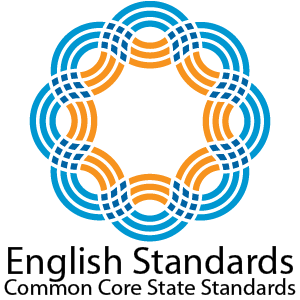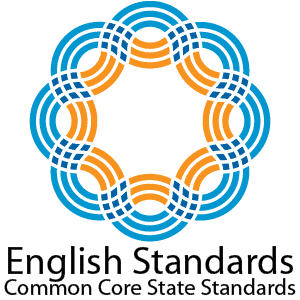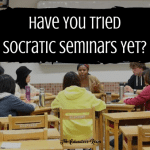Read Part 1 of this series about Reading Standards here.
Read Part 2 of this series about Writing Standards here.
[fusion_builder_container hundred_percent=”yes” overflow=”visible”][fusion_builder_row][fusion_builder_column type=”1_1″ background_position=”left top” background_color=”” border_size=”” border_color=”” border_style=”solid” spacing=”yes” background_image=”” background_repeat=”no-repeat” padding=”” margin_top=”0px” margin_bottom=”0px” class=”” id=”” animation_type=”” animation_speed=”0.3″ animation_direction=”left” hide_on_mobile=”no” center_content=”no” min_height=”none”]
With the push of state testing and No Child Left Behind it seems we have moved away from explicitly teaching speaking and listening skills in the classroom. We have a generation of kids constantly bombarded by images and sounds, yet we are not teaching them how to analyze, process, evaluate and synthesize the things they see and hear. In an important step in education, speaking and listening skills have been given their own set of standards in the new Career and Readiness Common Core.
This month I have been highlighting the anchor standards in English Language Arts. The articles discuss ways to bridge what you may already be doing in your classroom with the new standards. Check out my articles on reading http://theeducatorsroom.com/2013/11/step-teach-ela-reading-standards/ and writing from previous posts. This is the list of the anchor standards for English Language Arts in speaking and listening from http://www.corestandards.org/ELA-Literacy/CCRA/SL. You can find your grade level specific standards there too.
Comprehension and Collaboration
- CCSS.ELA-Literacy.CCRA.SL.1 Prepare for and participate effectively in a range of conversations and collaborations with diverse partners, building on others’ ideas and expressing their own clearly and persuasively.
- CCSS.ELA-Literacy.CCRA.SL.2 Integrate and evaluate information presented in diverse media and formats, including visually, quantitatively, and orally.
- CCSS.ELA-Literacy.CCRA.SL.3 Evaluate a speaker’s point of view, reasoning, and use of evidence and rhetoric.
Presentation of Knowledge and Ideas
- CCSS.ELA-Literacy.CCRA.SL.4 Present information, findings, and supporting evidence such that listeners can follow the line of reasoning and the organization, development, and style are appropriate to task, purpose, and audience.
- CCSS.ELA-Literacy.CCRA.SL.5 Make strategic use of digital media and visual displays of data to express information and enhance understanding of presentations.
- CCSS.ELA-Literacy.CCRA.SL.6 Adapt speech to a variety of contexts and communicative tasks, demonstrating command of formal English when indicated or appropriate.
Comprehension and Collaboration is about listening to others. Students hear information and ideas from teachers, peers, during literature circles, at the guided reading table, in daily conversation, from presentations and presenters. These encounters should be meaningful and spark further ideas and insight. To do this we must teach skills for students to comprehend and then work together to further their ideas from the information they have received.
- During book discussion (literature groups, literature circles, guided reading) have students write the main idea being presented by the speaker. Also, have them write one question to clarify or better understand an idea shared by the speaker.
- Ask students to create a discussion for reading group over one of the chapters in the book. They should provide three questions from the chapter that support the theme or main idea.
- Watch discussions and ask students to identify the role of each participant.
- Provide students with Blooms taxonomy stems. Have them create two questions for each level of questioning on a given topic, chapter, or subject.
- Use Today’s Meet to allow students to ask questions and share ideas during a class presentation or lecture.
- Present information in a digital format from Audio Owl http://www.booksshouldbefree.com/, Lit2Go http://etc.usf.edu/lit2go/, Storynory http://www.storynory.com/, or Story Line Online www.storylineonline.net.
Presentation of Knowledge and Ideas takes students understanding and allows them to communicate and share their understanding and knowledge. It can be tied into the presentation standards for writing. This standard can also easily transfer into mathematics, science, and social studies classrooms. Presentations and projects that allow students to express their ideas, thoughts and understanding fit under this standard.
- Have students rename chapters or give them hashtags during guided reading or from science and social studies reading.
- Use iStory or other apps for students to read aloud and record. This allows your classroom to turn books into digital versions to share with younger classrooms.
- Record stories, poetry or ideas using audiocity (a free download) or iPad apps.
- Have students list three situations that require the use of formal English and three situations that would require the use of informal discourse. Compare how these are similar and different.
- Show students video clips and ask them to determine if formal English or informal discourse are required. What evidence is in the clips to support their answers?
Classrooms have evolved into active learning spaces. Students are often working in groups and with partners to explore and share their knowledge. They have information online and through digital media. Processing, comprehending, making sense of, and then presenting these ideas is important. Use the ideas from the ELA Speaking and Listening Standards to mold your classroom community into a garden of information that is shared, synthesized, and represented among your students.[/fusion_builder_column][/fusion_builder_row][/fusion_builder_container]






